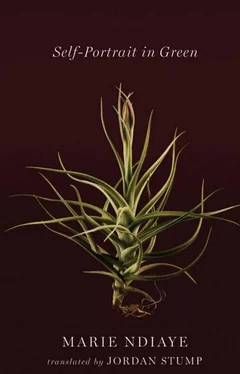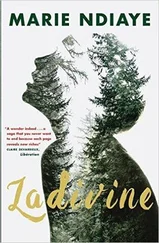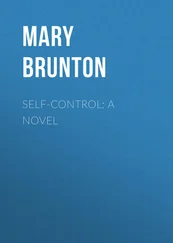“Didn’t take you long. . I’m doing fine, myself.”
And in fact the only notable difference between this woman in green and the one they used to know lay in this one’s greater beauty, but it was still the same beauty, only expanded, vibrant, thanks to contentment, to money, to sexual pleasure.
“Yes,” Jenny says gravely, “sexual pleasure most of all, it was perfectly clear in her eyes, in her smile, in her way of rubbing the fur collar against her chin. Ivan saw it just like I did. That was the thing he couldn’t get over.”
Then I begin to hop from one foot to the other, staring at Jenny with a gaze drained of tenderness. I ask:
“What couldn’t that imbecile Ivan get over? His wife’s death? Her reappearance as a contented mistress? Yes, just what was it Ivan couldn’t get over?”
Jenny’s lips are quivering. How worn she seems, assailed by disillusionment, by multiple losses, by ridiculous, terrifying convictions!
In a tiny little voice she tells me Ivan continually tortured himself after this meeting, belittling himself, desperately jealous of the happiness he thought he saw radiating from his first wife’s entire magnificent person. I then understand that what particularly consumed them wasn’t seeing a dead woman before them and hearing her speak, but finding her so exultant, so infinitely appealing.
I feel deeply displeased by this nonsense, and I’m not far from hating Jenny, from finding her stupid and mediocre. Adopting a sly, mischievous air, she tells me that Ivan never found the woman in green again, although he took great pains to do so, whereas Jenny met up with her several more times. She saw her in that same department store, in the perfume aisle, then in the park of a nearby city where Jenny worked for a while. The woman recognized her and stopped to talk, still wrapped in her silky coat, gracious and aglow.
In spite of myself, I ask:
“Did you tell Ivan?”
Yes, Jenny told Ivan, and no doubt she was wrong not to conceal her joy and her pride, because it was against her, Jenny, that Ivan’s jealousy then turned. Jenny tells me he accused her of conspiring with the other woman. Oh, she couldn’t find the words to defend herself.
Did she feel like she was conspiring? Now I can’t stop questioning Jenny, I who, so full of disdain, wanted to flee and hear no more of this foolishness. Did she conspire against Ivan? Jenny tells me she never conspired — why would she have conspired? What would she have got, in the way of satisfaction or material goods, from conspiring? But with that their marriage came to an end, both of them fixated on the same person, though in different ways — Jenny longing for nothing less than to strike up a fresh friendship with the woman in green, in the hopes that she might learn about life, might learn everything that’s eluded her for the past fifty years, things others know but can’t tell her, not knowing just what they might be, and so, thinks Jenny, she might finally understand why everyone who comes close to her ends up turning away in anger and disappointment; and Ivan, for his part, wanting very simply to know how his first wife found her way to such radiance, once delivered of those nearest her. They’ve separated, but they keep an anxious watch on each other. Jenny says to me, spitefully:
“If she tried to hang herself so she wouldn’t have to see Ivan again, do you really think she’d come visit him now?”
And you, I say to myself, poor Jenny, why should she come visit you?
Jenny’s mother later confides to me that the hanged woman recently knocked on her door. Jenny’s mother opened it, recognized Ivan’s first wife, and fainted dead away. She tells me the woman was very beautiful, lovelier and more luminous than before, and she smiled with great kindness and self-confidence.
“She did die, though,” I say.
“Well, now we’re not so sure,” the old woman answers.
“It should be possible to find out.”
But the three sons want no part of it. None of them ever spotted their mother again after they saw her lying in her coffin.
“They resent Ivan and me for seeing her,” Jenny says, “and for not keeping it secret.”
Could it really be that some other woman was buried in the place of the woman in green? But who, in that case, was the hanged woman whose legs Jenny had clasped in her arms? And how could such a misunderstanding arise? I say goodbye to Jenny and her parents, fuming, vowing to have no more to do with this disastrous family. Not yet out of the house, I can already hear Jenny bitterly upbraiding the old couple. They don’t say a word, they seem to be listening to her with sorrow and interest.
That was the last time I saw Jenny, and I don’t believe I’ll be seeing her again, since she’s dead. Her parents wrote to tell me they’d found her lifeless in the bed she slept in as a girl. Evidently she killed herself with an overdose of prescription drugs, but her parents didn’t say if it was a mistake or a deliberate act, and I myself have no idea. Am I overinterpreting certain turns of phrase, certain wordings, or is there really relief in the old couple’s tone, in their way of saying, for example, “So that’s that”? Granted, Jenny had done everything in her power to tyrannize them, after exhausting and defeating them with her many failures.
* * *
I stopped off to say hello to them, one day when I happened to be driving past their house, not sure why I was taking the trouble, why I should go to such lengths. No, the fact is I didn’t happen to be driving by their house, absolutely not. I had to make a sizable detour to get there. It was the middle of summer, and I’d never come there before at that time of year, so I nearly didn’t recognize the place, once so dreary, now heavy with ivy and honeysuckle. Ruddy and round in their light summer clothes, Jenny’s parents welcomed me almost jovially. They were drinking coffee on the flower-bedecked terrace, in the company of a tall brunette woman with dark green eyes. She was about the age Jenny would have been, around fifty-three, and wearing a short, straight dress with little green and white checks. The two old people were happy, even jolly, joking. I shouldn’t have come, I told myself, deflated by the prospect of having to meet someone new, and because the parents clearly had no need of my compassion.
“Well now,” the old woman said to me, “this is Ivan’s wife.”
And I ask:
“So Ivan’s remarried?”
She doesn’t answer. She pinches her upper lip between thumb and index finger and tugs it right and left, a gesture I remember as her way of expressing unease.
I never saw those two old people and that green-eyed woman again.
* * *
How strange it is, after you’ve spent some forty years alongside your own mother, after you’ve butted heads with her on all manner of questions but most often and most violently on the inertia, the grayness, the deadly smallness of her existence, which, no doubt wrongly, you thought darkened and depersonalized your own, how strange it is that this woman you can no longer bear to know so well should suddenly metamorphose on her own into a green woman , and one of that type’s most alien and troubling forms. In the year 2000, my mother was forty-five years old and living with my two twenty-year-old sisters in a grim, well-kept suburb that she never left, because she worked there as well, in the neighborhood school. And that’s all there was to her life in those days, a round little woman, virtuous, unfailingly solemn, trotting along toward her workplace each morning, never glancing left or right for fear she might glimpse something that looks vaguely or unmistakably like adventure or novelty, for fear she might glimpse a bit of the face of someone she knew, someone she couldn’t deny not knowing, who might tell her some troubling story, might reveal some intimate secret. She covered her hair with a dark gray shawl, which also enveloped her cheeks, her chin, her shoulders and chest. She had a proud, almost swaggering ugliness — such, then, was my mother at age forty-five, and such had she been for a very long time, ever since my father left her, her and my sisters, to take up with my childhood friend, ever since she’d resolved, so it seemed, to confront my father’s juvenile arrogance with a kind of saintliness, with an equally arrogant withdrawal from the world. I went to see them only rarely, and then I stopped altogether, convinced that my visits were disagreeable for all three of them, forcing them to play host — to make tea and ladyfingers, to chat, to make a fuss over some child of mine, facing the ever-present danger of a question they might find deeply upsetting, however harmless it might seem to me. Two years went by, then, without my seeing or hearing of them. Were my sisters in school, had they married? I had no idea, and little by little I forgot those two sisters of mine. I heard stories of one’s addiction to drugs, of the other’s alcoholism. Nevertheless, uncertain that these stories did indeed involve my two sisters, I paid them little mind. Besides, I said to myself, suppose it’s so? Is it my affair to keep watch over my sisters, look after them, show them affection? No, that is not my affair. Raised in an ambiance of confrontation, jealousy, and acrimony, we can’t wipe that vitriol from our memories and love each other, even now that we’re adults. We can meet and be cordial, but we certainly can’t love each other. And so two years went by, in distance and indifference. Inevitably, I thought, something must have come along and altered my sisters’ existence, for, although unnaturally faint-hearted, they were still young enough that any trivial decision about their future would bring with it a change, however miniscule, in their fanatical routine. That my mother’s life might have strayed from its course, on the other hand, I never once dreamed — because how can you even die, simply that, when you live a life of stone, unchanging and immobile?
Читать дальше












